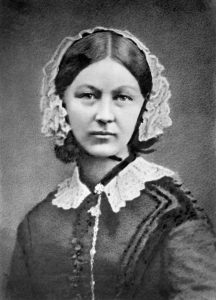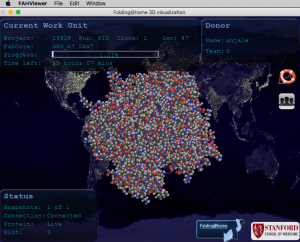
Extending a warm welcome to a guest lecturer from Hungary!


Let’s all pitch in and get our flu shot during this difficult pandemic time! Though the seasonal flu immunization is not always on the minds of the young and the healthy, let’s do our part by getting the vaccine to prevent the chance of contracting flu and COVID. If you’re uneasy about the flu shot, review the attached information about the flu vaccine (this is the CDC handout that is given out when you receive a flu shot). Many employees and nearly all insurance will cover the cost of a flu shot. Many county health departments also provide for free access for those not covered by insurance.

The World Health Organization (W.H.O.) has designated 2020 as the “Year of the Nurse”. In celebration of the professionals who provide 90% of a patient’s contact with a health worker, a few facts about one of the world’s most famous nurses. British nurse Florence Nightingale (who lived in the late 1800s) accomplished the following:
• She wrote around 200 (!) books and papers during her nursing career.
• In 1860 she drew a revolutionary version of the pie-chart (called the Coxcomb diagram) showing infection rates of British soldiers and made the case for hospital disinfection, making her a pioneer in infographic presentation.
• She spoke 4 languages very well (English, French, German, and Italian) and knew the classical languages Latin and Greek.
• Campaigned the British government for laws to improve hospital sanitation (specifically running water), which dramatically decreased death rates due to infection.
• Her birthday, May 12, is celebrated as International Nurses Day.
• Her parents disapproved of her career choice.
(Sources: The Economist and Mental Floss magazines)

Unlocking the DNA sequence was celebrated in the early 2000s as providing the key to curing disease. Overlooked is the relative lack of information about the structure of folded proteins. Most of the known protein structures studied are bacterial; of all the known protein structures, only 25% are human (2017 data). The proteins in our bodies are responsible for everything from sending signals in autoimmune disease to driving the uncontrolled growth in cancer. Knowing the structure of proteins allows researchers to design and build drugs that impair their action.
You can contribute to unlocking the structure of proteins with your desktop/laptop computer and internet connection. Through the Folding@Home research project run by a Stanford professor, you can load a free program onto your computer that runs in the background. Using your computer’s processing power, folding simulations are run and the data you generate contributes to research. The program runs mathematical calculations to determine how the proteins will fold in the most energetically favorable shape. By unlocking the computer power of computers all over the world, protein structures can be determined and used by researchers to better understand disease.
foldingathome.org